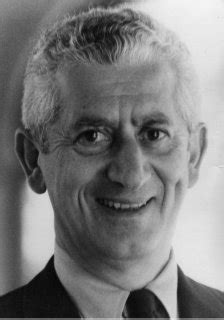A Quote by Gilbert K. Chesterton
Dogma is actually the only thing that cannot be separated from education. It IS education. A teacher who is not dogmatic is simply a teacher who is not teaching. There are no uneducated people; only most people are educated wrong. The true task of culture today is not a task of expansion, but of selection-and-rejection. The educationist must find a creed and teach it.
Related Quotes
There can be, therefore, no true education without moral culture, and no true moral culture without Christianity. The very power of the teacher in the school-room is either moral or it is a degrading force. But he can show the child no other moral basis for it than the Bible. Hence my argument is as perfect as clear. The teacher must be Christian. But the American Commonwealth has promised to have no religious character. Then it cannot be teacher.
What is education? Properly speaking, there is no such thing as education. Education is simply the soul of a society as it passes from one generation to another. Whatever the soul is like, it will have to be passed on somehow, consciously or unconsciously, and that transition may be called education. ... What we need is to have a culture before we hand it down. In other words, it is a truth, however sad and strange, that we cannot give what we have not got, and cannot teach to other people what we do not know ourselves.
I think, however, that there isn't any solution to this problem of education other than to realize that the best teaching can be done only when there is a direct individual relationship between a student and a good teacher - a situation in which the student discusses the ideas, thinks about the things, and talks about the things. It's impossible to learn very much by simply sitting in a lecture, or even by simply doing problems that are assigned. But in our modern times we have so many students to teach that we have to try to find some substitute for the ideal.
The real difficulty is that people have no idea of what education truly is. We assess the value of education in the same manner as we assess the value of land or of shares in the stock-exchange market. We want to provide only such education as would enable the student to earn more. We hardly give any thought to the improvement of the character of the educated. The girls, we say, do not have to earn; so why should they be educated? As long as such ideas persist there is no hope of our ever knowing the true value of education.
...a student attains 'higher order thinking' when he no longer believes in right or wrong". "A large part of what we call good teaching is a teacher´s ability to obtain affective objectives by challenging the student's fixed beliefs. ...a large part of what we call teaching is that the teacher should be able to use education to reorganize a child's thoughts, attitudes, and feelings.
The devotion of democracy to education is a familiar fact. The superficial explanation is that a government resting upon popular suffrage cannot be successful unless those who elect and who obey their governors are educated. Since a democratic society repudiates the principle of external authority, it must find a substitute in voluntary disposition and interest; these can be created only by education.
...we discovered that education is not something which the teacher does, but that it is a natural process which develops spontaneously in the human being. It is not acquired by listening to words, but in virtue of experiences in which the child acts on his environment. The teacher's task is not to talk, but to prepare and arrange a series of motives for cultural activity in a special environment made for the child.
At the heart of good education are those gifted, hardworking, and memorable teachers whose inspiration kindles fires that never quite go out, whose remembered encouragement is sometimes the only hard ground we stand upon, and whose very selves are the stuff of the best lessons they ever teach us. Most of us, no matter how long ago it's been, can name our kindergarten teacher. Our first music teacher. Our junior high algebra teacher. Good teachers never die.




































